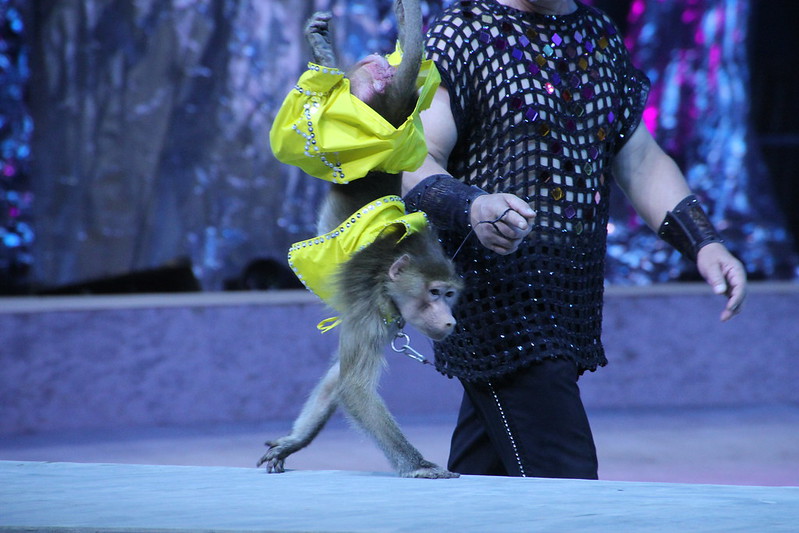#MacaqueWeek: Human obsession with our primate cousins fuels pet and performance cruelty
24 June 2019

Fascination with a species so similar to our own has led to thousands of macaques being poached from the wild – now it’s up to us to help them.
Macaques live in complex communities, use tools to access food and share their discoveries through social learning.
They share mental and anatomical traits with humans, and sadly, this has led to great suffering.
Their physiological similarity makes them the primate of choice for medical research, while their perceived cuteness as “mini-humans” makes them prime candidates for exotic pets and animal performers.
Many thousands of macaques are abused in circuses around the world. They are forced through fear and punishment to perform meaningless tricks for entertainment.
Many more are housed in poor quality conditions as pets in people’s homes. These individuals often spend extensive amounts of time chained and socially isolated.
For highly social animals with complex behavioural, psychological, and physiological needs, keeping them as pets, chaining them, housing them in barren cages, and using them in circuses causes extreme stress and suffering.
Opening the cages
While kind-hearted individuals and government agencies do their best for macaques rescued from the pet trade, often financial resources and expertise are lacking.
In Vietnam, female Buddhist monk Thich Dieu Mo has spent the last 20 years providing sanctuary for macaques rescued from poachers.
But with no formal training, the macaques she rescued continued to live separately in small cages with little to no enrichment.
In Yok Don National Park, the situation was similar with four rescued macaques brought to the park but continuing to live separately in tiny wooden crates and metal cages.

Thankfully, Animals Asia was able to help.
Veterinarians were dispatched to provide health care while experts were sought to design open enclosures that would allow the macaques to live in social groups and express natural behaviours.
Pivotally, funding was secured from compassionate animal lovers around the world and the true sanctuary these 16 macaques so desperately deserved finally became reality.
Ending the show
An Animals Asia investigation in 2017 revealed that at least 200 macaques are forced to perform across a dozen or so entertainment parks, zoos and tourist attractions in Vietnam.
The industry causes a huge amount of suffering to the animals it abuses while also misinforming the public and distorting public conception of these incredible animals.
The audience learns that macaques are here for our entertainment – to be dressed up, caged, humiliated and exploited.
But the industry received a blow recently when an Animals Asia campaign led to a circus in a UNESCO-accredited nature reserve being closed down.

While the individual animals are privately owned by a circus company and will likely have to continue to perform elsewhere for now, the statement sent to the industry and the country is clear: animal performance is no longer acceptable.
The industry is likely to be further hit in the near future as TripAdvisor, the world’s largest travel site, has announced they will no longer profit from animal performance.
The move belatedly brings TripAdvisor into line with all reputable travel sites and while more needs to be done, it is clear the animal entertainment industry is now on the back foot.
If you would like to help macaques and other animals suffering as part of the tourism industry, sign the petition and tell TripAdvisor to stop allowing their platform to be misused as a hub for animal cruelty.
BACK





